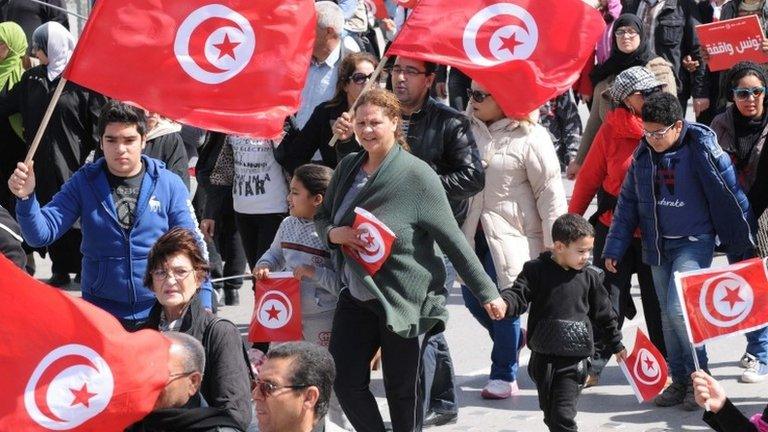Tunisia blast: Islamic State says it carried out bus attack
- Published
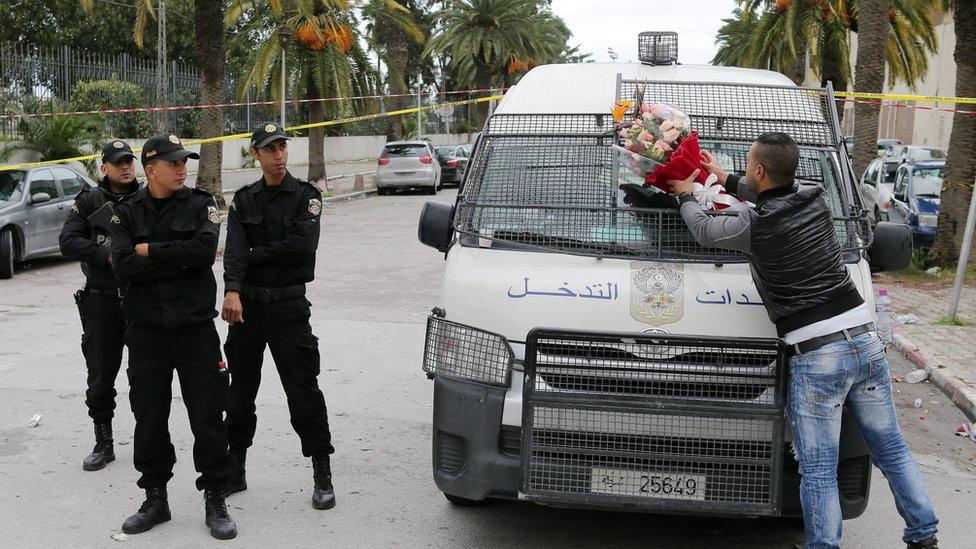
Tunisia has been plagued by Islamist violence
The Islamic State (IS) militant group said it was behind a deadly attack on a bus carrying presidential guards in the Tunisian capital Tunis.
In a message on social media it said a suicide bomber carried out Tuesday's attack, which killed 13 people.
A backpack or belt containing 10kg (22lb) of military explosives was used, Tunisia's interior ministry said.
IS has already claimed two high-profile attacks on the country's tourism industry this year.
The White House has condemned the latest attack "in the strongest terms".
The explosion took place at a bus stop where the presidential guard picks up and drops off its staff, near the former headquarters of the party of deposed president Zine el-Abidine Ben Ali.
In response, the authorities imposed a nationwide state of emergency and a nightly curfew in the capital.
Tunisia has also closed its border with Libya for 15 days.
The IS claim was largely expected, says the BBC's Rana Jawad in Tunis, but the nature of the attack - a suicide bombing - raises questions that will be difficult for the Tunisian authorities to answer.
It is still not clear whether the bomber boarded the bus reserved for the presidential guard, or simply got close enough to cause the deadly impact, the correspondent says.
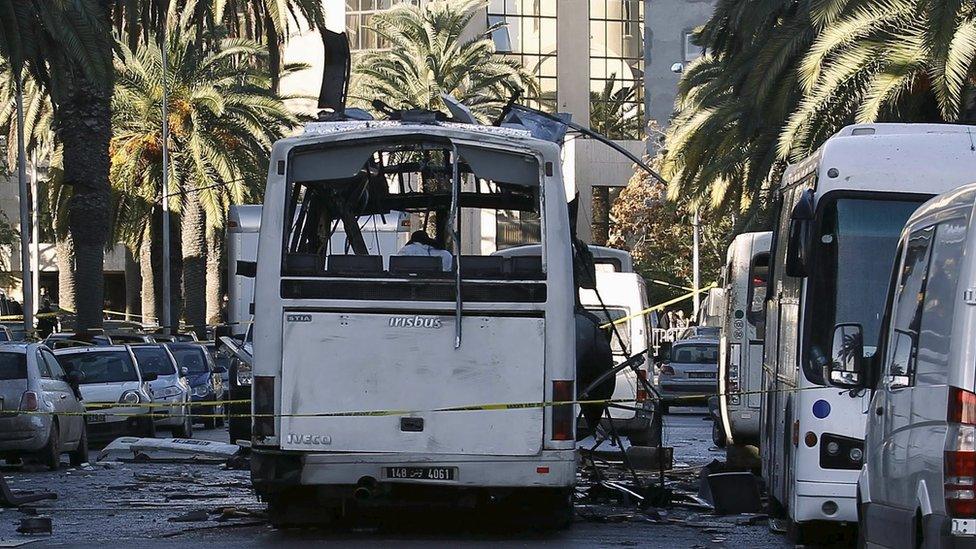
The blast happened near former president Ben Ali's party's headquarters
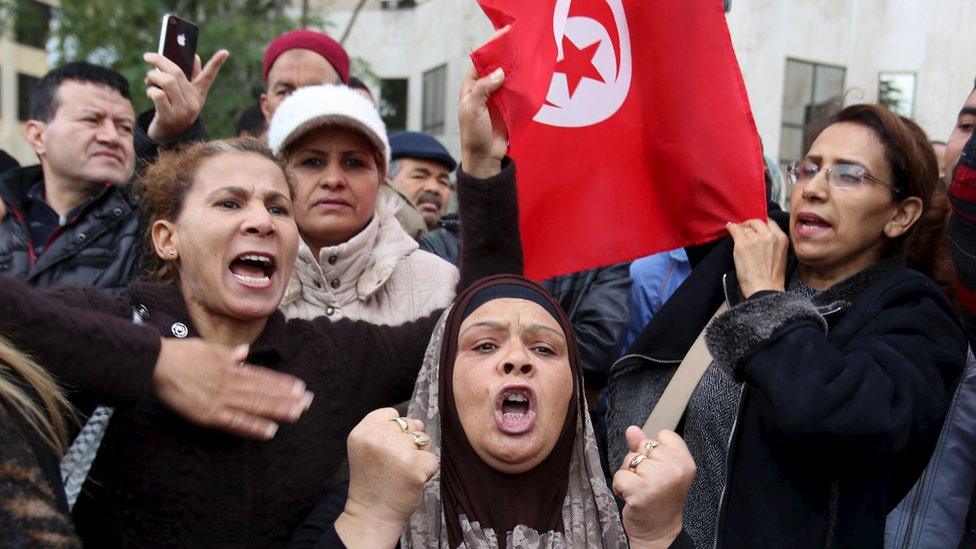
Tunisians have protested against this and other attacks
The North African state's secular government is battling a wave of Islamist violence.
IS says it was behind an attack by a gunman on the beach resort of Sousse in June, killing 38 people.
And in March, IS gunmen attacked the famous Bardo Museum in Tunis, killing more than 20 people.
However, the group has not yet declared an official branch in the country.
Tunisia is also believed to provide the biggest contingent of jihadists overseas, with the authorities saying at least 3,000 of its nationals are fighting in Iraq and Syria.
Tunisians are also fighting alongside extremists in neighbouring Libya.
- Published9 October 2024
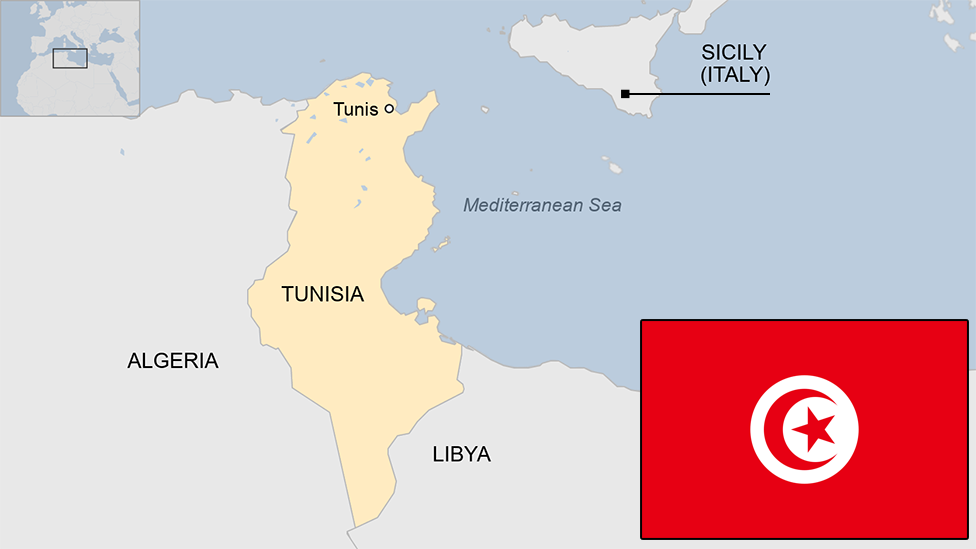
- Published29 June 2015
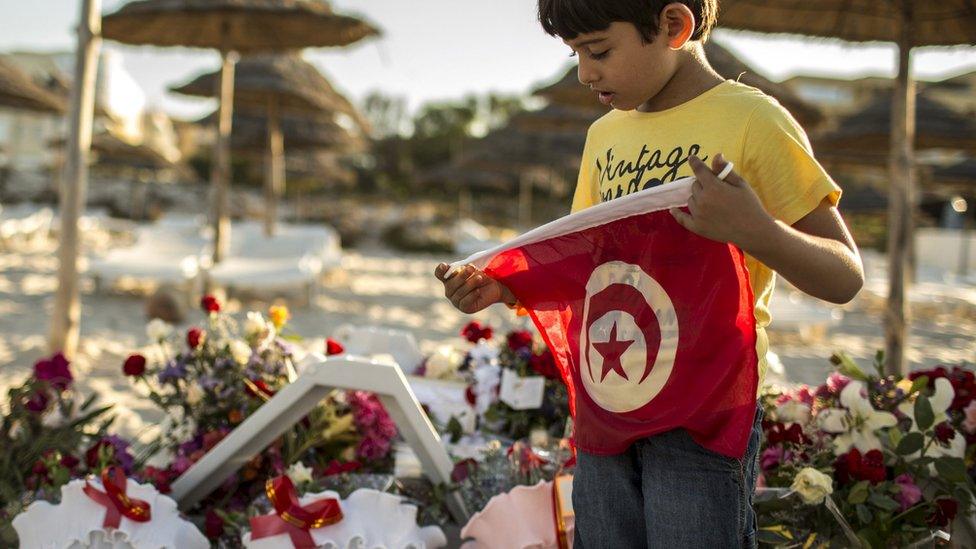
- Published2 July 2015
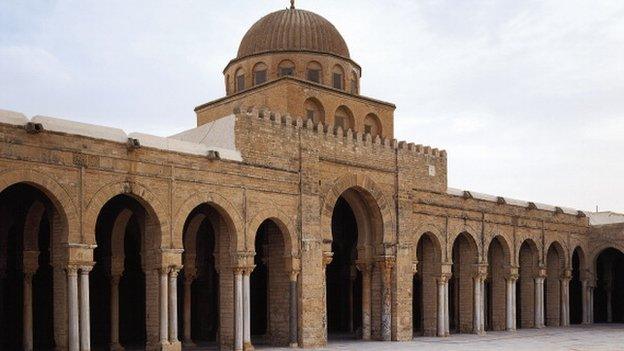
- Published29 March 2015
